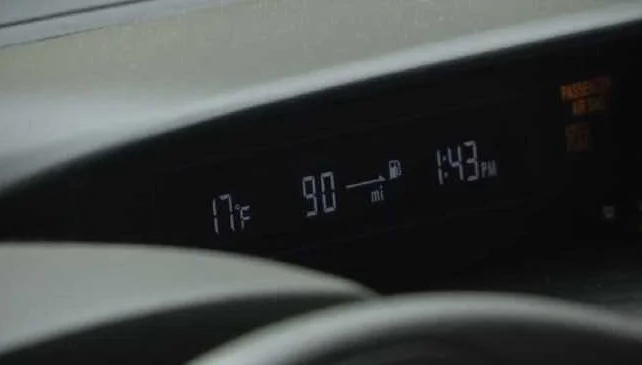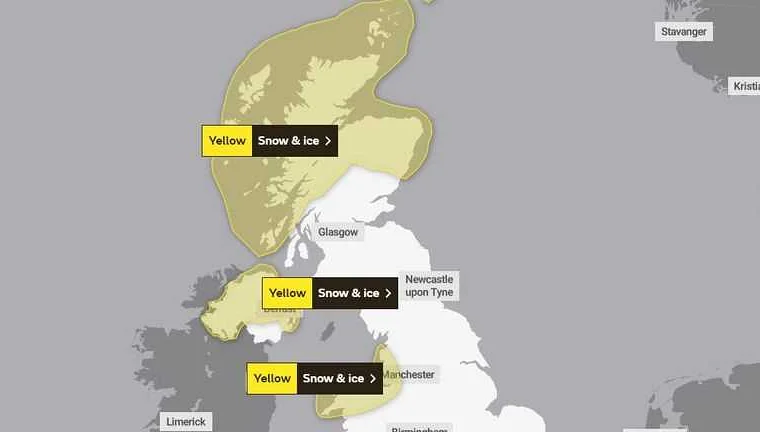Doctor Tyazhelnikov: The Impact of Sudden Cold Weather on Individuals with Weak Hearts
Doctor Tyazhelnikov explains the impact of a sudden drop in temperature on individuals with cardiac conditions. Learn about the risks and precautions to take in order to protect your heart during extreme weather conditions.
Winter can be a beautiful season, with its glistening snow and cozy nights by the fire. However, for individuals with weak hearts, the cold weather can pose serious risks to their health. Dr. Tyazhelnikov, a renowned cardiologist, has dedicated his research to understanding how a sharp cold snap affects people with cardiovascular conditions.
According to Dr. Tyazhelnikov, when the temperature drops suddenly, our blood vessels constrict in an attempt to conserve heat. While this response is natural, it can be dangerous for those with weakened hearts. The narrowed blood vessels increase the workload on the heart, making it harder for it to pump blood effectively. This can lead to chest pain, shortness of breath, and even heart attacks in extreme cases.
Furthermore, the cold weather can also increase blood pressure, putting additional strain on the heart. Dr. Tyazhelnikov explains that the body’s natural response to cold is to release stress hormones, which can cause blood vessels to become stiffer and narrower. This, combined with the increased blood pressure, can create a deadly combination for individuals with already compromised cardiovascular systems.
So, what can people with weak hearts do to protect themselves during a cold snap? Dr. Tyazhelnikov recommends a few key measures. First and foremost, it is essential to keep warm and layer clothing to maintain a comfortable body temperature. He also emphasizes the importance of staying hydrated, as dehydration can exacerbate the negative effects of cold weather on the heart.
Regular exercise is crucial, even in the winter months, says Dr. Tyazhelnikov. Although it may be tempting to stay indoors, physical activity helps keep the heart strong and improves blood circulation. However, he advises caution and recommends avoiding strenuous activities in extremely cold conditions.
In conclusion, a sharp cold snap can have a significant impact on individuals with weak hearts, increasing the risk of chest pain, shortness of breath, and heart attacks. By taking preventative measures and following Dr. Tyazhelnikov’s advice, those with cardiovascular conditions can protect their health and enjoy the beauty of winter safely.
How Extreme Cold Can Impact People with Heart Conditions
Extreme cold temperatures can have a significant impact on individuals with heart conditions. The sudden drop in temperature can cause blood vessels to constrict, leading to an increase in blood pressure and strain on the heart.
For those with weak hearts, this increased strain can be especially dangerous. It can trigger heart attacks, arrhythmias, and other severe cardiovascular events. The cold weather can also worsen symptoms for those with existing heart conditions, such as chest pain, shortness of breath, and fatigue.
Additionally, extreme cold can make it harder for the heart to pump blood efficiently. The body’s natural response to cold is to constrict blood vessels in order to conserve heat, which can put extra stress on the heart. As a result, blood flow to vital organs may be reduced, leading to further complications.
It is crucial for individuals with heart conditions to take precautions during cold weather. This includes staying indoors and keeping warm, layering clothing to maintain body heat, and avoiding strenuous activities that can further strain the heart. It is also important to take prescribed medications as directed, as they can help manage heart conditions and reduce the risk of complications during extreme cold.
If you or someone you know has a heart condition, it is important to be aware of the potential risks associated with extreme cold. By taking necessary precautions and seeking medical attention when needed, individuals can better protect their heart health during cold weather.
Understanding the Effects of a Sharp Cold Snap on Individuals with Weak Hearts

A sharp cold snap can have detrimental effects on individuals with weak hearts. It is important to understand the impact of extreme cold temperatures on cardiovascular health in order to prevent potential risks and provide appropriate care.
During a cold snap, the body constricts blood vessels in an effort to conserve heat and maintain core body temperature. This vasoconstriction can increase blood pressure and put additional strain on the heart. For individuals with weak hearts, this increased workload can be dangerous and potentially lead to a heart attack or other cardiovascular events.
Additionally, the cold weather can cause blood to become thicker and more prone to clotting. This can further increase the risk of heart problems, as blood flow to the heart may become restricted or blocked. Individuals with weakened hearts are particularly vulnerable to these complications.
In extreme cold temperatures, the body also experiences changes in heart rate and rhythm. The heart may beat faster, leading to increased oxygen demand and potential strain on the heart muscle. This can be especially problematic for individuals with existing heart conditions.
Furthermore, cold weather puts stress on the body as it works to maintain a stable internal temperature. This stress can trigger the release of stress hormones, such as adrenaline, which can affect heart function. In individuals with weak hearts, this added stress can be particularly detrimental.
To protect individuals with weak hearts during a sharp cold snap, it is important to take preventive measures. This includes ensuring adequate protection against cold temperatures, such as wearing warm clothing and avoiding prolonged exposure to extreme cold. It is also crucial to actively manage existing cardiovascular conditions and follow a healthy lifestyle that includes regular exercise, a balanced diet, and regular check-ups with a healthcare provider.
In conclusion, a sharp cold snap can have serious implications for individuals with weak hearts. Understanding the effects of extreme cold temperatures on cardiovascular health is crucial for prevention and appropriate care. By taking necessary precautions and managing existing conditions, we can help protect vulnerable individuals and mitigate the risks associated with cold weather.
Insights from Dr. Tyazhelnikov

Dr. Tyazhelnikov, a renowned cardiologist, has provided valuable insights into the effects of sharp cold snaps on people with weak hearts. His research has shed light on the potential risks and precautions that individuals with heart conditions should take during cold weather.
According to Dr. Tyazhelnikov’s findings, extreme drops in temperature can lead to vasoconstriction, a narrowing of blood vessels. This can result in increased blood pressure and strain on the heart, particularly in individuals with pre-existing heart conditions. Cold snaps can also trigger the release of stress hormones, such as adrenaline, which further taxes the cardiovascular system.
Dr. Tyazhelnikov recommends that individuals with weak hearts take certain measures to protect their health during cold weather. These include wearing warm clothing, such as hats, scarves, and gloves, to prevent heat loss through the extremities. It is important to layer clothing and cover the face to avoid inhaling cold air directly, as this can aggravate existing heart conditions.
Additionally, Dr. Tyazhelnikov advises avoiding strenuous physical activity in extreme cold, as this can put excessive strain on the heart. It is important to maintain a balanced diet, stay hydrated, and take medications as prescribed to support heart health during cold weather. Regular check-ups with a cardiologist are also crucial for individuals with weak hearts, as they can provide personalized recommendations and monitor any changes in cardiac function.
| 1. Dress warmly to prevent heat loss |
| 2. Avoid strenuous physical activity in extreme cold |
| 3. Maintain a balanced diet and stay hydrated |
| 4. Take medications as prescribed |
| 5. Regular check-ups with a cardiologist |
By following these precautions, individuals with weak hearts can minimize the risk of complications and ensure their overall well-being during sharp cold snaps.
Increased Risk of Heart Attacks

As Dr. Tyazhelnikov explains, a sharp cold snap can significantly increase the risk of heart attacks for individuals with weak hearts. When exposed to cold temperatures, the blood vessels constrict, causing an increase in blood pressure. This can put added stress on the heart, making it harder for it to pump blood effectively.
In addition, cold weather can also lead to an increase in blood viscosity, or thickness, which can further impede blood flow and increase the risk of blood clots. Blood clots can block the arteries, leading to a heart attack or stroke.
Furthermore, cold temperatures can trigger the release of stress hormones, such as adrenaline, which can increase heart rate and blood pressure. This can be particularly dangerous for individuals with weak hearts, as their hearts may already be working harder to compensate for their condition.
It is important for individuals with weak hearts to take extra precautions during a cold snap. This includes dressing warmly to prevent heat loss, avoiding strenuous activities, and staying indoors when temperatures are extremely cold. It is also crucial for individuals with heart conditions to follow their prescribed medications and treatment plans to manage their condition effectively.
| Constriction of blood vessels | Increases blood pressure and puts stress on the heart |
| Increase in blood viscosity | Impedes blood flow and increases risk of blood clots |
| Release of stress hormones | Raises heart rate and blood pressure |